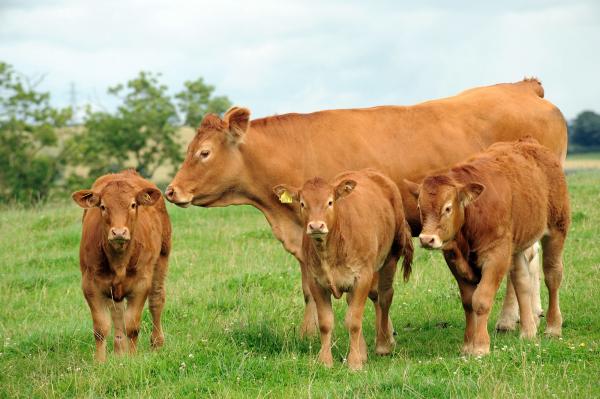



Neospora: significant cause of abortion in dairy, beef herds in Northern IrelandNI
Neospora also known as Neospora caninum is single celled parasitic organism that can affect cattle, particularly pregnant cattle, where it can result in abortion. The disease affects cattle worldwide, and once infected, cattle remain infected for life, making the disease very difficult to eradicate.Transmission of the parasite to cattle occurs in 1 of 2 ways;
- Dogs to cattle – this occurs when dogs eat part of an infected aborted calf or placenta, or even infected wildlife, allowing the parasite to multiply within the dog resulting in the shedding of the parasite in the dog faeces. Cattle then ingest the parasitic oocysts in contaminated feed or water. This method of transmission often results in an abortion storm, especially if the majority of the herd are naïve and have never been exposed to the parasite before.
- Dam to foetus during pregnancy – this occurs during pregnancy, either when a cow becomes infected for the first time, or there is reactivation of a persistent parasite infection. Each of these can result in the transmission of the parasite to the foetus causing either an abortion or the birth of a persistently infected calf that appears absolutely normal. Female calves affected in this way are likely to transmit the parasite to each of her calves during pregnancy resulting again in abortion or a persistently infected individual, carrying on the cycle.
The timing of the infection during pregnancy in the bovine determines the outcome for the foetus. Infection with Neospora in early pregnancy is usually fatal, resulting in resorption of the foetus. With infection in mid pregnancy, foetal death can occur, or can result in the birth of a persistently infected calf that may or may not show neurological signs. With infection later in gestation, the calf will be born persistently infected, usually showing no clinical signs.
When a bovine has aborted due to the parasite it is less likely she will abort in any subsequent pregnancies. A Neospora infected animal is of no direct risk to the rest of the herd, i.e. no horizontal transmission of infection occurs, but as mentioned above, infected material, if eaten by the definitive or intermediate hosts can pose a risk. It is important to remember that parasitic oocysts can also survive in the environment for many months.
Diagnosis of a Neospora infection is investigated by carrying out antibody testing of the breeding females in the herd. Positive antibody results means that the animal has been infected with the parasite but does not necessarily mean it was the cause of any particular abortion. A negative antibody result should be interpreted with caution and is not always helpful as antibodies fluctuate within the body and cannot always be detected in infected animals. If Neospora is suspected in an antibody negative animal then it is advisable that antibody testing should be repeated, particularly in the 3 months prior to calving when antibodies are more likely to be detectable.
If an abortion does occur then relevant samples should be submitted, including the foetus, placenta and dam’s blood. The parasite can be detected by testing for antibodies in both the dam’s blood and foetal fluids. Histopathology, and the finding of lesions specific to the parasite particularly within the foetal brain, can also help with definitive diagnosis.
Currently there are no available vaccines or licensed drug treatments for Neospora in the UK.
To minimise the risk of Neospora infection getting into the herd, a closed herd policy should be considered. However, it is still possible that infection can occur with contamination from dogs that have access to fields, feed or water. Therefore, strict biosecurity protocols are important to prevent access by dogs, especially to parts of the farm where pregnant animals are housed and the calving pens where pregnant animals are calved down. Rodent control is another important feature of biosecurity as they can act as a reservoir of infection for dogs.
Neospora testing is available at AFBI and also forms part of the CHECS accredited AFBI Cattle Health Scheme. Herds that satisfy testing criteria are accredited and provide an option for the purchasing of replacement breeding stock with reduced risk of Neospora infection. See AFBI Cattle Health Scheme for more details.



